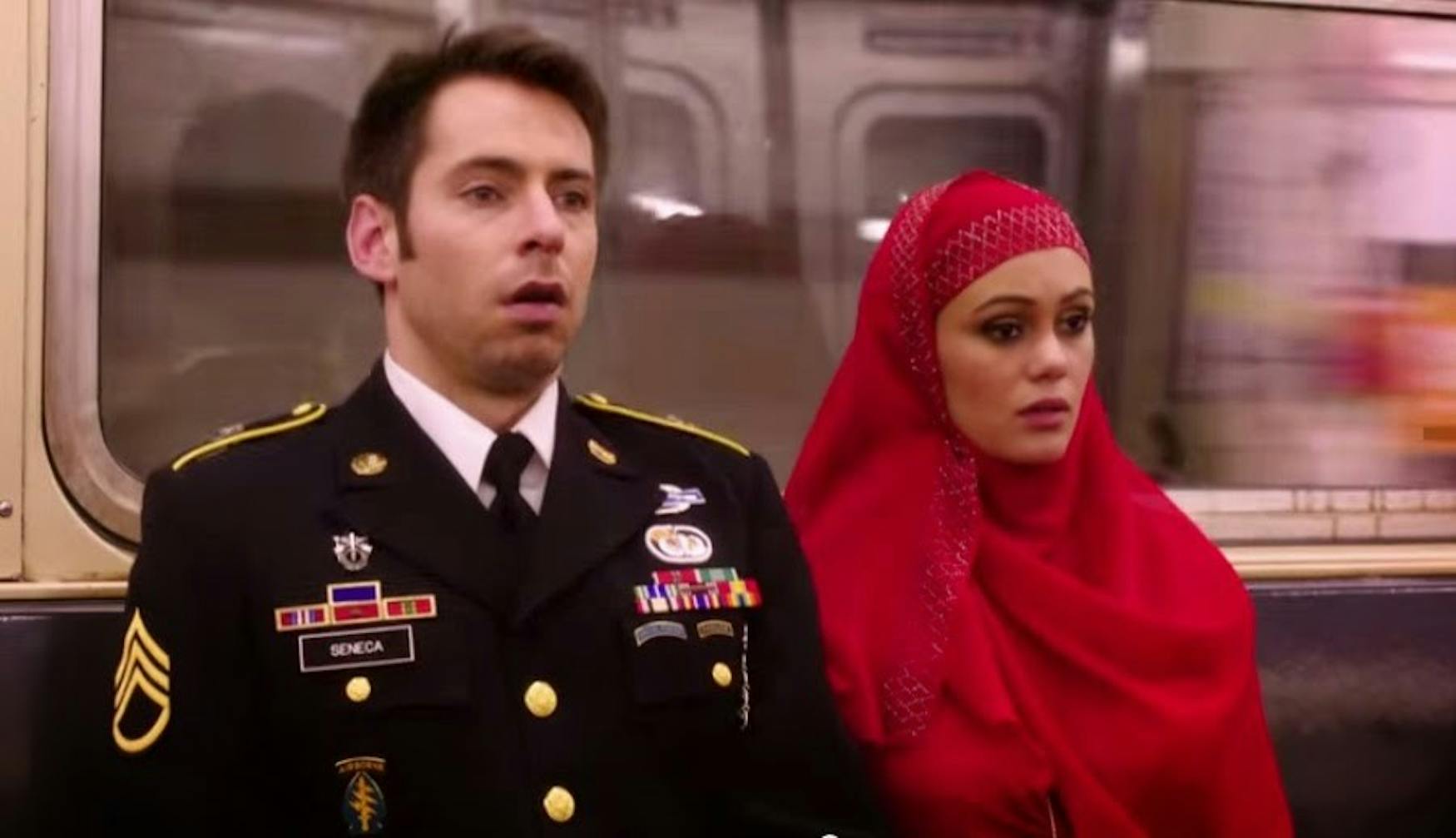‘Amira and Sam’ stresses social issues
Amira & Sam is the perfect comedy for Brandeis students, combining social issues with the classic notions of a romantic comedy. The film, directed by Sean Mullin, combines war and Wall Street elitism in a romantic comedy that surprisingly is not as atypical as one might expect.
Mullin, a graduate of the United States Military Academy at West Point, seems to have used his experience in the army to create characters Sam and Bassam, two veterans of the Iraq war. Sam, played by deadpan comic Martin Starr, returns to New York from his third army tour and goes to meet his friend Bassam (Laith Nakli) who worked as his translator in Iraq. The two came out of the war unscathed physically, but their experiences during the war are very much present in their minds. For instance, Bassam feels indebted to his brother, who died during the war. This guilt leads Bassam to watch over his Iraqi niece, Amira, a bold and outgoing 20-something Muslim woman who makes her living selling illegal DVDs.
Amira’s ongoing legal troubles force her to spend time with Sam, and the two develop a relationship. Dina Shihabi does an excellent job of balancing Amira’s outgoing and lively personality with the adversity her character faces as an identifiably Muslim woman.
As a war veteran from a predominantly Muslim country dating a Muslim woman, Sam and Amira make an unusual pair. The contrast between these two characters is most striking visually when Sam takes Amira to his cousin’s engagement party. Sam wears his army uniform and Amira wears a low-cut red dress with a matching red hijab. People at the party comment that Sam has done enough for “those people” and question his choice in dating Amira. Later, the couple leave the party and take the subway home. The image of the two sitting on the subway—Sam wearing his uniform, Amira’s hijab-clad head resting on his shoulder—is not subtle, but it is striking.
Sam and Amira’s relationship stemmed from an initial dislike, and while they do spend a lot of time together, their bond seems more like loyalty than love. Sam promises Bassam that he will watch over Amira and she encourages Sam to pursue his dreams—these are obviously nice things to do, but the motivations behind these actions need more definition in order to create a narrative for the couple as more than a metaphor for coexistence.
In this way, the romantic aspects of the movie seem to be very genre-based. There are the requisite plot twists, grand gestures and last-minute confessions of attraction, but it is challenging to empathize with these actions. Further character development could assist in creating more compelling reasons for Amira and Sam to fall in love, other than the fact that they are opposites and the movie is a romantic comedy, where opposite characters typically fall for one another.
Undercutting the themes of war and reconciliation, as represented by Amira and Sam’s relationship, is the impending financial collapse of 2008. Sam’s cousin Charlie works at a hedge fund company that, despite its appearance, is not doing as well as it may seem. Charlie, played deftly by Paul Wesley as arrogant and entitled, perfectly fits the negative stereotype of a Wall Street trader. Charlie wants to comodify Sam’s war experiences and use his veteran status to attract further investment clients. It becomes clear that Charlie is not to be trusted, which puts Sam in a challenging position.
Overall, Amira & Sam highlights important social issues with its themes of war and coexistence, even if it does not entirely break free from the typical romantic comedy plotline.
The movie was certainly entertaining—Starr, Shihabi, Wesley and Nakli work well together and played their roles to their full comedic potential. While the movie could benefit from more in-depth characterization, it was definitely worth the watch.



Please note All comments are eligible for publication in The Justice.